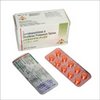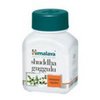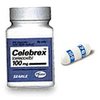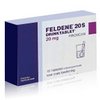INDICATIONS
Indocin is used for treating moderate to severe rheumatoid arthritis, osteoarthritis, and ankylosing spondylitis. It is used to treat gout or certain types of bursitis and tendonitis. It may also be used for other conditions as determined by your doctor. Indocin is an NSAID. NSAIDs treat the symptoms of pain and inflammation. They do not treat the disease that causes those symptoms.
INSTRUCTIONS
Use Indocin as directed by your doctor! Check the label on the medicine for exact dosing instructions.
- Take Indocin by mouth with food. This may not lower the risk of stomach or bowel problems (eg, bleeding, ulcers). Talk with your doctor if you have persistent stomach upset.
- Take Indocin with a full glass of water (8 oz/240 mL) as directed by your doctor.
- If you miss a dose of Indocin and you are taking it regularly, take it as soon as possible. If it is almost time for your next dose, skip the missed dose. Go back to your regular dosing schedule. Do not take 2 doses at once.
Ask your health care provider any questions you may have about how to use Indocin .
STORAGE
Store Indocin at room temperature, between 68 and 77 degrees F (20 and 25 degrees C). Store away from heat, moisture, and light. Keep Indocin out of the reach of children.
MORE INFO:
Active Ingredient: Indomethacin.
Do NOT use Indocin if:
- you are allergic to any ingredient in Indocin
- you have had a severe allergic reaction (eg, severe rash, hives, trouble breathing, growths in the nose, dizziness) to aspirin or an NSAID (eg, ibuprofen, celecoxib)
- you have recently had or will be having bypass heart surgery
- you are taking diflunisal, another NSAID (eg, ibuprofen), or triamterene
- you are in the last 3 months of pregnancy
Contact your doctor or health care provider right away if any of these apply to you.
Some medical conditions may interact with Indocin. Tell your doctor or pharmacist if you have any medical conditions, especially if any of the following apply to you:
- if you are pregnant, planning to become pregnant, or are breast-feeding
- if you are taking any prescription or nonprescription medicine, herbal preparation, or dietary supplement
- if you have allergies to medicines, foods, or other substances
- if you have a history of kidney or liver disease, diabetes, or stomach or bowel problems (eg, bleeding, perforation, ulcers, inflammation)
- if you have a history of swelling or fluid buildup, depression, mental or mood problems, seizures, Parkinson disease, asthma, growths in the nose (nasal polyps), or mouth inflammation
- if you have high blood pressure, a blood disorder, bleeding or clotting problems, heart problems (eg, heart failure), or blood vessel disease, or if you are at risk for any of these diseases
- if you have poor health, dehydration or low fluid volume, low blood sodium levels, or high blood potassium levels, you drink alcohol, or you have a history of alcohol abuse.
Some medicines may interact with Indocin. Tell your health care provider if you are taking any other medicines, especially any of the following:
- Anticoagulants (eg, warfarin), corticosteroids (eg, prednisone), diflunisal, heparin, other NSAIDs (eg, ibuprofen), salicylates (eg, aspirin), or selective serotonin reuptake inhibitors (SSRIs) (eg, fluoxetine) because the risk of stomach bleeding may be increased
- Potassium-sparing diuretics (eg, spironolactone, triamterene) because the risk of kidney problems or increased blood potassium levels may be increased
- Cyclophosphamide because low blood sodium levels may occur
- Probenecid because it may increase the risk of Indocin 's side effects
- Cyclosporine, digoxin, lithium, methotrexate, quinolones (eg, ciprofloxacin), or sulfonylureas (eg, glipizide) because the risk of their side effects may be increased by Indocin
- Angiotensin-converting enzyme (ACE) inhibitors (eg, enalapril), angiotensin receptor blockers (eg, losartan), beta-blockers (eg, propranolol), or diuretics (eg, furosemide, hydrochlorothiazide) because their effectiveness may be decreased by Indocin.
This may not be a complete list of all interactions that may occur. Ask your health care provider if Indocin may interact with other medicines that you take. Check with your health care provider before you start, stop, or change the dose of any medicine.
Important safety information:
- Indocin may cause dizziness or drowsiness. These effects may be worse if you take it with alcohol or certain medicines. Use Indocin with caution. Do not drive or perform other possible unsafe tasks until you know how you react to it.
- Serious stomach ulcers or bleeding can occur with the use of Indocin. Taking it in high doses or for a long time, smoking, or drinking alcohol increases the risk of these side effects. Taking Indocin with food will NOT reduce the risk of these effects. Contact your doctor or emergency room at once if you develop severe stomach or back pain; black, tarry stools; vomit that looks like blood or coffee grounds; or unusual weight gain or swelling.
- Do NOT take more than the recommended dose or use for longer than prescribed without checking with your doctor.
- Indocin is an NSAID. Before you start taking any new medicine, read the ingredients. If it also has an NSAID (eg, ibuprofen) in it, check with your doctor. If you are not sure, check with your doctor or pharmacist.
- Do not take aspirin while you are using Indocin unless your doctor tells you to.
- Indocin may interfere with certain lab tests. Be sure your doctor and lab personnel know that you take Indocin .
- Lab tests, including kidney function, complete blood cell counts, and blood pressure, may be done to monitor your progress or to check for side effects. Be sure to keep all doctor and lab appointments.
- Use Indocin with caution in the elderly; they may be more sensitive to its effects, including stomach bleeding, kidney problems, confusion, or mental changes.
- Indocin should be used with extreme caution in children younger 15 year; safety and effectiveness in these children have not been confirmed.
- Pregnancy and breast-feeding: Indocin may harm the fetus. Do not use it during the last 3 months of pregnancy. If you think you may be pregnant, contact your doctor. You will need to discuss the benefits and risks of using Indocin while you are pregnant. Indocin is found in breast milk. Do not breast-feed while you are taking Indocin .
All medicines may cause side effects, but many people have no, or minor, side effects. Check with your doctor if any of these most common side effects persist or become bothersome:
Constipation; diarrhea; dizziness; drowsiness; gas; headache; heartburn; nausea; stomach upset.
Seek medical attention right away if any of these severe side effects occur:
Severe allergic reactions (rash; hives; itching; trouble breathing; tightness in the chest; swelling of the mouth, face, lips, or tongue); blood in the urine; bloody or black, tarry stools; change in the amount of urine produced; chest pain; confusion; dark urine; depression; fainting; fast or irregular heartbeat; fever, chills, or persistent sore throat; mental or mood changes; numbness of an arm or leg; one-sided weakness; rectal bleeding; red, swollen, blistered, or peeling skin; ringing in the ears; seizures; severe headache or dizziness; severe or persistent stomach pain or nausea; severe vomiting; shortness of breath; sudden or unexplained weight gain; swelling of hands, legs, or feet; unusual bruising or bleeding; unusual joint or muscle pain; unusual tiredness or weakness; unusual vaginal bleeding; vision or speech changes; vomit that looks like coffee grounds; yellowing of the skin or eyes.
This is not a complete list of all side effects that may occur. If you have questions about side effects, contact your health care provider.
 DiclofenacDiclofenac is used to treat pain or inflammation caused by arthritis or ankylosing spondylitis.as low as $0.31
DiclofenacDiclofenac is used to treat pain or inflammation caused by arthritis or ankylosing spondylitis.as low as $0.31 PrednisonePrednisone is used for treating severe allergies, arthritis, asthma, multiple sclerosis, and skin conditions. as low as $0.33
PrednisonePrednisone is used for treating severe allergies, arthritis, asthma, multiple sclerosis, and skin conditions. as low as $0.33 Shuddha GugguluShuddha Guggulu is useful in cholesterol and weight management. as low as $54.6
Shuddha GugguluShuddha Guggulu is useful in cholesterol and weight management. as low as $54.6 PrednisolonePrednisolone is used for treating allergies, arthritis, breathing problems (eg, asthma), certain blood disorders, collagen diseases (eg, lupus), certain eye diseases (eg, keratitis), cancer (eg, leukemia), endocrine problems (eg, adrenocortical insufficiency), intestinal problems (eg, ulcerative colitis), swelling due to certain conditions, or skin conditions (eg, psoriasis).as low as $0.36
PrednisolonePrednisolone is used for treating allergies, arthritis, breathing problems (eg, asthma), certain blood disorders, collagen diseases (eg, lupus), certain eye diseases (eg, keratitis), cancer (eg, leukemia), endocrine problems (eg, adrenocortical insufficiency), intestinal problems (eg, ulcerative colitis), swelling due to certain conditions, or skin conditions (eg, psoriasis).as low as $0.36 CelebrexCelebrex is used for treating rheumatoid arthritis, osteoarthritis, ankylosing spondylitis, juvenile arthritis, menstrual pain, or pain.as low as $0.6
CelebrexCelebrex is used for treating rheumatoid arthritis, osteoarthritis, ankylosing spondylitis, juvenile arthritis, menstrual pain, or pain.as low as $0.6 FeldeneFeldene is used for treating rheumatoid arthritis or osteoarthritis.as low as $0.57
FeldeneFeldene is used for treating rheumatoid arthritis or osteoarthritis.as low as $0.57